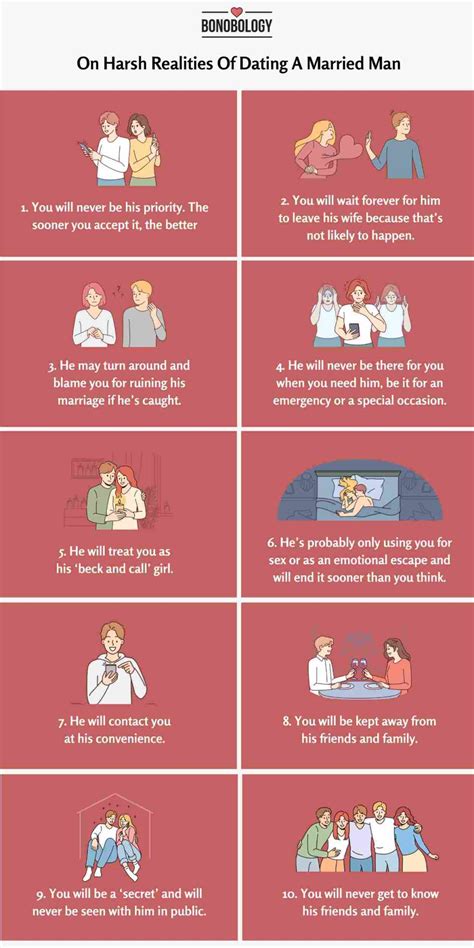
Married life, while often idealized, presents unforeseen challenges and profound adjustments, according to a recent survey and candid confessions from married men. Many men express feeling unprepared for the emotional labor, financial burdens, and personal sacrifices that marriage entails, leading to feelings of regret and disillusionment. The loss of personal freedom and the evolution of spousal dynamics top the list of unexpected hardships cited by these men.
Married Men Confess: The Harsh Realities They Wish They Knew
The transition to married life is frequently depicted as a blissful union, yet a growing number of married men are openly discussing the stark realities they encountered post-nuptials, realities often far removed from the romanticized ideal. A confluence of factors, ranging from unexpected financial strains to the relentless demands of emotional labor, has led some men to question their decision to marry, as revealed through surveys and personal anecdotes.
One prevalent theme emerging from these confessions is the profound sense of lost freedom. “It’s like life isn’t yours anymore,” one man confessed. This loss of autonomy encompasses various aspects, including the ability to make spontaneous decisions, pursue personal hobbies, and maintain individual social connections without consulting or considering a partner’s needs and preferences. The shift from an individualistic lifestyle to a shared existence requires a significant adjustment, one that many men find difficult to navigate. The constant negotiation and compromise inherent in marriage can be particularly draining, leading to resentment and a feeling of being trapped.
Financial pressures also loom large as a source of marital stress. Many men expressed feeling overwhelmed by the financial responsibilities that come with marriage, particularly when coupled with homeownership, raising children, and managing joint finances. The expectation to be the primary breadwinner, while potentially outdated in some contexts, still persists for many men, adding to the pressure. Unforeseen expenses, such as medical bills or home repairs, can further exacerbate financial anxieties, leading to conflict and strain within the marriage. The financial burden can also limit personal spending and investment opportunities, contributing to the feeling of lost freedom.
Emotional labor, often disproportionately shouldered by women, is another significant factor contributing to the disillusionment of some married men. While the article doesn’t explicitly state men are doing the emotional labor, the lack of reciprocity and the expectation to provide constant emotional support can be exhausting. Men may feel pressured to suppress their own emotions and needs in order to maintain harmony in the relationship, leading to feelings of isolation and resentment. The constant need to anticipate and respond to a partner’s emotional needs can be draining, particularly when their own emotional well-being is neglected.
The evolution of spousal dynamics over time also presents unexpected challenges. The initial passion and excitement of a relationship often fade, replaced by routine and familiarity. This transition can be particularly difficult for men who entered marriage with unrealistic expectations about the long-term nature of romantic love. The shift from a passionate romance to a companionate relationship requires a conscious effort to maintain intimacy and connection. Neglecting this aspect can lead to emotional distance and a feeling of growing apart. Furthermore, the changing roles and responsibilities within the marriage can create friction, particularly if there is a lack of communication and understanding.
The realization that marriage is not a constant state of bliss but rather a continuous process of negotiation, compromise, and hard work can be jarring. Many men confess to entering marriage with a naive understanding of the commitment involved, leading to disappointment and regret when faced with the inevitable challenges. The key to a successful marriage lies in open communication, mutual respect, and a willingness to adapt and grow together. However, these skills are not always readily available, and the lack of effective communication can lead to misunderstandings, resentment, and ultimately, the breakdown of the relationship.
The article also highlights the importance of pre-marital counseling and realistic expectations. Couples who engage in pre-marital counseling are better equipped to navigate the challenges of marriage and develop effective communication skills. Openly discussing financial expectations, household responsibilities, and long-term goals can help prevent misunderstandings and build a stronger foundation for the relationship.
The confessions of these married men serve as a cautionary tale, reminding us that marriage is not a fairy tale but a complex and demanding commitment. While the rewards of a successful marriage can be immense, the journey requires constant effort, open communication, and a willingness to adapt and grow together. The key is to enter marriage with realistic expectations and a proactive approach to addressing the inevitable challenges that will arise. Ignoring these harsh realities can lead to disillusionment, regret, and ultimately, the failure of the marriage.
The prevalence of these sentiments raises important questions about the societal pressures surrounding marriage and the lack of realistic portrayals of its challenges. The romanticized ideal of marriage, often perpetuated by media and popular culture, can create unrealistic expectations and leave individuals feeling unprepared for the realities of married life. A more honest and nuanced discussion of the challenges and rewards of marriage is needed to help individuals make informed decisions and build stronger, more resilient relationships.
In conclusion, the confessions of these married men offer a valuable insight into the less glamorous aspects of married life. While marriage can be a source of great joy and fulfillment, it also requires hard work, compromise, and a willingness to face challenges head-on. By acknowledging these realities and preparing for them proactively, couples can increase their chances of building a lasting and fulfilling marriage. The “happily ever after” requires constant effort, open communication, and a realistic understanding of the commitment involved. The featured article, sourced from Yahoo Lifestyle, provides a snapshot into the multifaceted experiences of married men and highlights the need for a more realistic and open dialogue about the realities of marriage. The original article underscores the common regrets voiced by some men within a marriage.
Expanding on Key Themes:
-
Loss of Freedom: The sentiment of lost freedom resonates strongly among the men surveyed. This isn’t simply about being unable to go out with friends whenever they please; it extends to larger life decisions. Previously, choices regarding career changes, relocation, or even significant purchases were made unilaterally, or at least with a greater degree of individual autonomy. In marriage, these decisions become joint endeavors, requiring negotiation and compromise. The perceived loss of control can lead to resentment, especially if one partner feels their needs and desires are consistently being subordinated to the other’s. The article doesn’t mention that sometimes men are ok with that dynamic.
-
Financial Strain: The financial pressures of marriage are multifaceted. Beyond the obvious expenses associated with weddings, honeymoons, and establishing a shared household, there are longer-term financial commitments such as mortgages, car payments, and potential childcare costs. These burdens can be particularly acute for men who feel societal pressure to be the primary breadwinner. This pressure can manifest in several ways: accepting undesirable jobs for financial security, working long hours, and foregoing personal passions in favor of more lucrative pursuits. The article emphasizes that financial disagreements are a leading cause of marital conflict, and unresolved financial issues can erode the foundation of the relationship.
-
Emotional Labor Imbalance: While the term “emotional labor” isn’t explicitly defined in the original article, the concept is implicitly present. The men’s confessions suggest a feeling of being emotionally drained by the demands of the relationship. This could stem from a perceived lack of reciprocity in emotional support, a feeling of constantly needing to anticipate and cater to their partner’s needs, or a suppression of their own emotions to maintain harmony. The original article fails to define the emotional imbalance. The failure to address emotional needs can contribute to feelings of isolation and resentment.
-
Evolving Spousal Dynamics: The transition from the initial excitement of a relationship to the more routine and predictable patterns of married life can be a source of disappointment. The “spark” doesn’t necessarily disappear, but it requires conscious effort to maintain. Date nights, shared hobbies, and open communication are essential for nurturing intimacy and connection over time. The article doesn’t highlight if men actively engage in these activities. The challenge lies in adapting to the changing needs and desires of both partners. As individuals grow and evolve, their relationship must also evolve to remain fulfilling. A failure to adapt can lead to a feeling of growing apart, where partners become more like roommates than romantic companions.
-
Unrealistic Expectations: Many men enter marriage with romanticized notions of what it entails. These expectations are often shaped by media portrayals, societal pressures, and personal experiences. The reality of marriage, with its inevitable challenges and compromises, can clash sharply with these idealized visions. The article makes it clear that a proactive approach to preparing for marriage can mitigate the risk of disappointment. Pre-marital counseling, open communication about finances and expectations, and a willingness to adapt and grow together are essential for building a strong and resilient relationship.
The Role of Societal Expectations:
The confessions of these married men highlight the role of societal expectations in shaping their experiences. The pressure to conform to traditional gender roles, the romanticized portrayal of marriage in media, and the lack of open dialogue about the challenges of married life can all contribute to unrealistic expectations and feelings of disillusionment. It is crucial to challenge these expectations and foster a more nuanced understanding of marriage as a complex and evolving relationship.
The Importance of Communication and Compromise:
The success of any marriage hinges on effective communication and a willingness to compromise. Open and honest conversations about finances, expectations, and individual needs are essential for preventing misunderstandings and building a strong foundation. Compromise is also crucial, as both partners must be willing to make concessions and adapt to the changing needs of the relationship. The article does not provide specific real life examples. A failure to communicate and compromise can lead to resentment, conflict, and ultimately, the breakdown of the marriage.
Beyond Regret: Finding Solutions:
While the article focuses on the regrets of some married men, it’s important to note that these challenges are not insurmountable. Many couples find ways to navigate the difficulties of married life and build strong, fulfilling relationships. The key is to acknowledge the realities of marriage, communicate openly and honestly, and seek help when needed. Therapy, counseling, and support groups can provide valuable resources for couples struggling to navigate the challenges of married life. This is often a vital part of any long lasting partnership.
Addressing the Imbalance in Perspective:
It’s important to acknowledge a potential bias in the original article. By focusing solely on the confessions of married men, it presents a one-sided perspective on the challenges of marriage. Women also experience difficulties and regrets in marriage, and their voices are equally important. A more balanced and comprehensive analysis would consider the experiences of both men and women.
The Evolving Definition of Marriage:
The definition of marriage has evolved significantly in recent years. With the rise of same-sex marriage and increasing acceptance of diverse family structures, the traditional model of marriage is being challenged. This evolution has important implications for societal expectations and the way individuals approach marriage.
Long-Term Effects:
It is important to consider the long-term effects of these feelings of regret and disillusionment on individuals and their families. Untreated resentment and dissatisfaction can lead to a decline in mental and physical health, strained family relationships, and ultimately, divorce. Seeking help early on is crucial for preventing these negative outcomes.
The Need for More Research:
While the article provides anecdotal evidence of married men’s regrets, more research is needed to understand the prevalence and underlying causes of these sentiments. Large-scale surveys and qualitative studies can provide valuable insights into the challenges of married life and inform the development of interventions and resources to support couples.
Marriage in the Digital Age:
The digital age presents unique challenges to marriage. Social media, online pornography, and the constant connectivity of modern life can create new sources of conflict and strain. Couples must navigate these challenges together and establish healthy boundaries to protect their relationship.
The Role of Intimacy and Sexual Satisfaction:
Intimacy and sexual satisfaction are essential components of a healthy marriage. A decline in either can lead to feelings of disconnection and resentment. Open communication about sexual needs and desires is crucial for maintaining intimacy and satisfaction over time.
Individual Differences:
It is important to acknowledge that individual experiences of marriage vary widely. Factors such as personality, cultural background, and previous relationship experiences can all influence an individual’s perception of marriage. There is no one-size-fits-all approach to marriage, and couples must find what works best for them.
The Impact of Children:
The arrival of children can significantly impact a marriage. While children can bring great joy and fulfillment, they also add stress and complexity to the relationship. Couples must navigate the challenges of parenthood together and prioritize their relationship to maintain intimacy and connection.
FAQ Section:
Q1: What are the main regrets married men often express, according to the article?
A1: According to the confessions cited, married men frequently regret the loss of personal freedom, unexpected financial burdens, the imbalance of emotional labor, and the evolution of spousal dynamics that deviates from initial expectations. They often feel unprepared for the constant need for negotiation and compromise inherent in married life.
Q2: How does financial strain impact marital satisfaction for men?
A2: Financial strain can significantly decrease marital satisfaction. Men often feel pressured to be the primary breadwinner, leading to stress and anxiety about providing for their families. Unexpected expenses and the limitations on personal spending can contribute to feelings of lost freedom and resentment, which can trigger conflicts within the relationship.
Q3: What is meant by “emotional labor” in the context of marriage, as it relates to the article, and how does it affect men?
A3: Although not explicitly defined in the original article, emotional labor implicitly refers to the effort required to manage and respond to the emotional needs of a partner. While traditionally associated with women, the confessions suggest men may feel drained by the constant expectation to provide emotional support, potentially suppressing their own needs and leading to feelings of isolation and resentment.
Q4: What advice does the article implicitly suggest for couples considering marriage to avoid these regrets?
A4: The article implicitly suggests pre-marital counseling, open communication about financial expectations, household responsibilities, and long-term goals. It emphasizes the importance of entering marriage with realistic expectations, understanding that it requires continuous effort, compromise, and a willingness to adapt and grow together.
Q5: Does the article provide a balanced view of marital challenges, considering both men and women?
A5: No, the article primarily focuses on the regrets and perspectives of married men, presenting a one-sided view of marital challenges. A more balanced perspective would include the experiences and challenges faced by women in marriage, providing a more comprehensive understanding of the complexities of marital relationships. The article fails to take into consideration the female perspective.
Expanding on the Nuances and Counterarguments:
While the article highlights the regrets of some married men, it’s crucial to acknowledge that not all men experience these feelings, and many find profound joy and fulfillment in their marriages. Attributing these regrets solely to the institution of marriage would be a gross oversimplification. Individual personalities, communication styles, levels of emotional intelligence, and pre-existing relationship dynamics all play a significant role in shaping marital experiences.
Furthermore, the article’s focus on “regrets” may be misleading. Some of the challenges described, such as financial strain or the evolution of spousal dynamics, are inherent to long-term relationships, regardless of whether they are formalized through marriage. The key is not necessarily to avoid these challenges altogether, but to develop the skills and strategies to navigate them effectively.
The Importance of Choosing the Right Partner:
One of the most crucial factors in marital satisfaction is choosing the right partner. Compatibility in values, goals, and communication styles is essential for building a strong foundation. A thorough understanding of each other’s strengths and weaknesses, as well as a willingness to accept and support each other through thick and thin, are critical for long-term success. The article doesn’t discuss this important variable.
The Role of Personal Growth:
Marriage can be a powerful catalyst for personal growth. The challenges of navigating a long-term relationship can force individuals to confront their own shortcomings and develop new skills. Learning to communicate effectively, compromise fairly, and empathize with a partner’s perspective can lead to significant personal development.
Challenging Traditional Gender Roles:
The article implicitly touches upon the impact of traditional gender roles on marital satisfaction. The pressure for men to be the primary breadwinner and suppress their emotions can contribute to feelings of stress and resentment. Challenging these traditional roles and fostering a more egalitarian partnership can lead to a more fulfilling and equitable marriage.
The Benefits of Shared Experiences:
Despite the challenges, marriage can offer numerous benefits, including companionship, emotional support, and shared experiences. Building a life together, raising a family, and creating lasting memories can be incredibly rewarding. The article doesn’t speak of the positive aspects of marriage. The key is to focus on the positive aspects of the relationship and actively work to maintain intimacy and connection over time.
The Impact of Social Support:
Social support from family and friends can play a significant role in marital satisfaction. Having a strong support network can provide valuable emotional support and practical assistance during challenging times. Connecting with other couples and sharing experiences can also help normalize the challenges of marriage and reduce feelings of isolation.
Seeking Professional Help:
There is no shame in seeking professional help when facing marital challenges. Therapy and counseling can provide valuable tools and strategies for improving communication, resolving conflicts, and strengthening the relationship. Seeking help early on can prevent problems from escalating and improve the chances of a successful outcome.
The Long-Term Perspective:
It is important to take a long-term perspective on marriage. There will inevitably be ups and downs, periods of great joy and periods of significant challenge. The key is to remain committed to the relationship and work through the difficult times together. A successful marriage is not about avoiding challenges, but about learning to navigate them effectively and emerging stronger as a couple.
Conclusion Revisited:
In conclusion, while some married men express regrets related to lost freedom, financial strain, emotional labor imbalances, and evolving spousal dynamics, these challenges are not universal and should not overshadow the potential rewards of a committed partnership. The key lies in realistic expectations, open communication, mutual respect, and a willingness to adapt and grow together. Societal expectations must be challenged to allow for more equitable and fulfilling relationships. The confessions of these men serve as a reminder that marriage requires continuous effort and a proactive approach to addressing inevitable difficulties, rather than a passive expectation of perpetual bliss.









